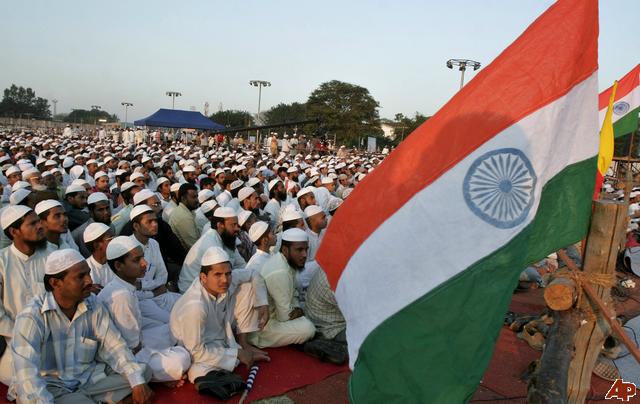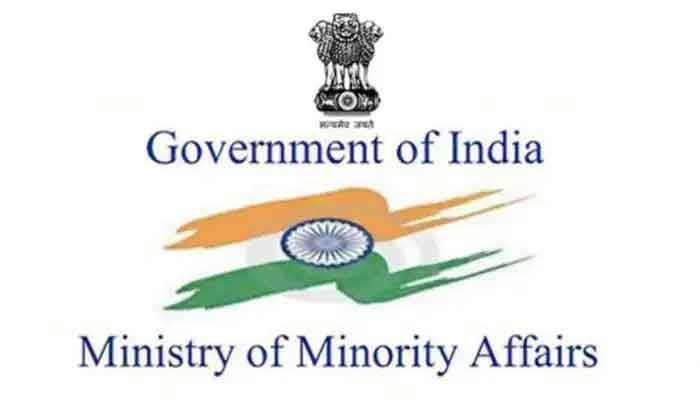
When a man is denied the right to live the life he believes in, he has no choice but to become an outlaw.
-Nelson Mandela
An educated, secular and liberal Indian Muslim is today in a bind; he is confronted with the dilemma of finding the right balance between loyalty to his faith and adherence to the new tests of patriotism. The high-voltage saffronization wave demonizing Muslims has broken the resistance of even strong neutral and secular groups now inclined to go with the official tide. The centuries-old worldly souls are slowly being ruptured. India has suddenly become deaf to its minorities, who are shuddering with muteness at the growing intolerance of the saffron hordes. Mocking and ridiculing Muslims is now rife in public spaces. As always, whipping up communal strife has been a critical strategy in the Hindu nationalist playbook.
Secularism in India
The Indian secular fabric is increasingly becoming fragile. Many on either side don’t believe in either tolerance or moderation and are determined to follow the age-old adage “paying them in their coin” too literally. The official machinery that had earlier been very subtle in its communal agenda is now baring its fangs brazenly.
India’s once cherished and internationally lauded secular values have been desecrated in primitive majoritarian politics driven more by uncontrollable rage than by sensible reason. Not just Hindutva foot soldiers but democratic institutions and spaces are being used to suppress religious freedom. We are fast seeing a potential breakdown of what was a flourishing multicultural society. Muslims have to routinely confront a culture of fear which sees everything Muslim as pure evil.
Muslims in cities will tell you how difficult it is to rent a house if you are a Muslim. A sense of despair runs through the entire Muslim community, and they are passing through the most horrific phase post-partition.
Confusing morality with something else?
Continuing political popularity has encouraged the intolerant elements, who are now openly imposing their moral benchmarks about diet, dress, faith and patriotism, totally overlooking the cultural sentiments of others. This rhetoric injects anti-Muslim sentiments into a climate where Muslims feel alienated and marginalized. The political and social environment has never been so hostile. An ordinary Muslim is hissed and snarled with vileness by all and sundry in the full glare of the law.
Several questions keep agitating a Muslim’s mind. I am a patriotic and secular Indian, and then.
- Why was I slaughtered in Gujarat?
- Why was I butchered in Muzaffarnagar? Why are governments banning the hijab?
- Why do people stare at me when I wear my skull cap or hijab?
- Why does my name force people to doubt my love for my nation?
- Why do I hear comments like “you will support Pakistan during a match”?
- Why do I not get a suitable apartment for rent in a posh locality?
- Why do people call me staunch if I pray fives time a day?
- Why am I called an orthodox Muslim if I follow my religion to the best of my capacities?
- Why are the boys of my community under constant surveillance?
- Why am I, not an Indian as much as you are?
- Why should we not wear the hijab?
India must not forget that it has an entire generation of young Muslims born into a turbulent era. Their mindset and identity are nurtured in an environment where they apprehend being suspected as the ‘disloyal others’. Some are highly talented and in the vanguard of the nation’s new development revolution.
Harming the fraternity itself
the negative profiling of Muslims can cause alienation among the Muslim community. As a result of this alienation, there will be enough space for fissiparous tendencies leading to long-term fissures. Studies have shown that one of the factors underpinning radicalization is a sense of loss of belonging and identity.
Religion is often portrayed simply as a social or political construct. However, religion is a daily practice for millions and the simple framework of an understanding that connects human lives to a spiritual reality. For the laity, faith is the prism through which they view the world, and their religious communities are their central environments. For them, it is a benign force, shorn of the political sentiments manipulated into an ideological construct by ideological groups for their election algorithms.
It isn’t easy to overstate the importance of faith in the lives of people for whom it is a creed of peace and love. Most people prefer to live in peace rather than conflict. At their very core, all religions espouse peace, tolerance and compassion. Yet, often the only religious voices on the front pages are those speaking the language of hatred or violence, especially in stories about conflict or social tensions. One of the best ways of breaking down barriers between faiths is by building relationships and getting to know each other. It’s not just a platitude, but a verse from the Qur’an where the lord says, “he made us different so we can get to know each other.”
breaking the boundaries
there is ample scope for reconciliation if only we are willing to avail ourselves of the myriad opportunities staring at us. Despite the many superficial differences, all our more profound and permanent values are similar. The respect for knowledge, justice, truth, compassion towards the less privileged, commitment to healthy family life, and the striving to improve our world and make it a better place for everyone are commonalities to people of all faiths. A more sobering reflection can help us smoothen the ridges straining our relationships.
It is worth quoting dr s Radhakrishnan, the philosopher president of India, “What counts is not creed but conduct. by their fruits ye shall know them and not by their beliefs. Religion is not a correct belief but righteous living. the Hindu view that every method of spiritual growth, every path to the truth is worthy of reverence has much to commend itself.” (The Hindu view of life, 1962).
Muslims are confronted with a dilemma of dichotomous loyalties. The best inspiration for them in these trying times is of maulana azad, the president of the Indian national congress during the negotiation of independence and was a key ally of Gandhi and Nehru.
One of India’s phenomenal freedom fighters and the first Education Minister of independent India, Maulana Abul Kalam Azad, was incredibly proud of his two identities: Musalman and Indian. In the age where Narendra Modi’s government is trying to separate Muslim identity from the Indian identity, Azad’s words ring loud and true.’. In the age where Narendra Modi’s government is trying to separate Muslim identity from the Indian identity, Azad’s words ring loud and true. ‘Meri tasveerke ye naqshzara gaur se dekh/Is meineikdaurkitariknazaraayegi (Look intently at the tracings on my picture/ You will see etchings of a bygone year)’.His epochal words still ring true
“I am a musalman and am proud of that fact. Islam’s glorious traditions of 1,300 years are my inheritance. I am unwilling to lose even the smallest part of this inheritance. The teaching and history of Islam, its arts, letters, and civilization are my wealth and fortune. I have to protect them.
As a musalman, I am interested in Islamic religion and culture and cannot tolerate interference. But in addition to these sentiments, I have others that the realities and conditions of my life have forced upon me. The spirit of Islam does not come in the way of these sentiments; it guides and helps me forward.
I am proud of being an Indian. I am part of the indivisible unity that is Indian nationality. I am indispensable to this noble edifice; without me, this magnificent structure of India is incomplete. I am an essential element which has gone to build India. I can never surrender this claim.”
India of Yore
India has been a flag bearer of pluralism and has always held the candle of tolerance, mutual respect and peaceful coexistence. Muslims have, time again, responded to the nation’s challenges, and facts and history attest to their role in building this great nation. Alienating one-fifth of its population will not help the country and will be against the spirit of its centuries-old ethos. People who demonize Islam to serve their agenda are no better than those who use it to perpetuate everything it opposes in its proper form.
Hinduism has always been a pragmatic religion; today’s India needs accommodation and coexistence. It is not just that this idea is an answer for our survival and prosperity, but it symbolizes the values we inherited from our founding fathers.
Moin Qazi is the author of the bestselling book, Village Diary of a Heretic Banker .He has worked in the development finance sector for almost four decades .He can be reached at [email protected]












































